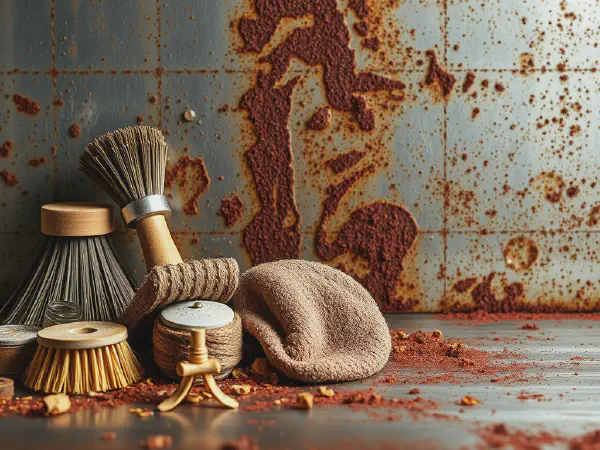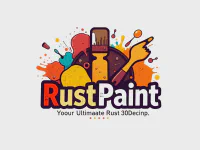Effective Rust Removal Techniques You Need to Know

Effective Rust Removal Techniques: A Comprehensive Guide
Rust is a common problem that affects metal surfaces, leading to deterioration and weakening of materials. Effective rust removal techniques are essential for maintaining the integrity and longevity of metal objects and structures. Whether it’s a rusty vehicle, outdoor furniture, or tools, knowing the right methods for rust removal can save you from costly replacements and ensure safety. In this article, we will explore various rust removal techniques, providing insights and tips to help you tackle rust effectively.
There are multiple approaches to rust removal, including chemical, mechanical, and natural methods. Each technique has its own advantages and specific use cases, depending on the severity of the rust and the material involved. In this guide, you will learn about various rust removal techniques, safety measures, and preventive strategies to keep your metal items rust-free in the long run.
Chemical rust removal techniques involve the use of specialized solvents to dissolve rust. These products are readily available and can be highly effective. Mechanical rust removal, on the other hand, involves abrasive methods that physically lift rust off the surface. Understanding which method is best for your situation is crucial for effective rust removal. Additionally, natural rust removal methods, which utilize household ingredients, can be both eco-friendly and affordable alternatives.
Preventing rust is just as important as removing it. By applying protective coatings, engaging in regular maintenance, and selecting the right paints and sealants, you can significantly reduce the chance of rust developing. Furthermore, rust removal techniques can vary based on the environment in which they are employed, whether it’s vehicles, household items, or marine equipment. This article will provide guidance tailored to different environments, making rust removal and prevention easier to manage.
In summary, being equipped with knowledge about rust removal techniques is invaluable for anyone handling metal objects. From simple household solutions to advanced chemical removers, there are numerous ways to tackle rust efficiently and effectively. By utilizing these techniques and taking preventive measures, you can extend the life of your metal possessions while maintaining their appearance and functionality.
Chemical Rust Removal Techniques
Chemical rust removal techniques involve the use of commercial rust removers and solvents designed to effectively eliminate rust from metal surfaces. These products often contain acids or other active ingredients that react with rust, making it easier to wipe or scrub away. Some popular chemical rust removers include phosphoric acid-based solutions, oxalic acid, and rust converters, which can transform rust into a protective coat. It's essential to choose a product compatible with the type of metal you are treating and the extent of rust present.
When applying chemical rust removers, it’s important to follow the manufacturer’s instructions for the best results. Typically, the process involves applying the remover to the rusted surface with a brush or cloth and allowing it to sit for a specific amount of time. After the allotted time, the area is scrubbed with a wire brush or scrub pad, then rinsed with water. For tougher rust, multiple applications may be necessary to achieve complete removal. Proper ventilation and application techniques can enhance the effectiveness of these chemicals.
Understanding effective Rust removal techniques is essential for preserving the lifespan and appearance of metal surfaces.
Safety precautions are vital when using chemical rust removers. Always wear protective gloves and goggles to shield your skin and eyes from potential harm. Work in a well-ventilated area to avoid inhaling fumes, and ensure that any leftover chemicals are disposed of properly according to local regulations. Following these safety measures will help protect you while achieving an effective rust removal job.
Mechanical Rust Removal Techniques
Mechanical rust removal techniques utilize abrasive methods to physically remove rust from metal surfaces. One common method is sanding, which can be performed manually with sandpaper or using a power sander for larger areas. This method is effective but can be time-consuming and may alter the surface finish of the metal object if not done carefully. Grinding is also a viable option, especially for heavy rust, where a grinder can remove rust quickly and efficiently.
Wire brushes are another useful tool for mechanical rust removal. They come in various forms, such as handheld brushes or attachments for drills and grinders. Wire brushes can effectively reach into crevices and remove rust without damaging the underlying metal. However, caution is necessary to avoid over-scrubbing, which can lead to scratched surfaces. It's crucial to choose the right type of wire brush for the job, as different brushes have different stiffness and durability levels.
Power tools can significantly increase the efficiency of mechanical rust removal. Tools such as orbital sanders, angle grinders, and rotary tools equipped with rust removal attachments can expedite the process and improve results. However, users should be mindful of their technique and not apply excessive pressure, as this can remove more material than desired. Proper attachment selection and maintenance can also enhance the effectiveness of power tools in rust removal tasks.
Natural Rust Removal Methods
Natural rust removal methods utilize household ingredients that are both effective and eco-friendly. One popular method is using a mixture of vinegar and baking soda. Vinegar contains acetic acid, which helps dissolve rust, while baking soda acts as a mild abrasive. By applying this mixture to the rusted surface and letting it sit for a while, the rust can be scrubbed away easily with a cloth or wire brush, resulting in a clean surface without harsh chemicals.
Another natural rust removal technique involves using lemon juice and salt. The citric acid in lemon juice helps break down rust, while the salt acts as an abrasive. Sprinkling salt on the rusted area and spraying lemon juice over it creates a paste that can be left on the surface for several hours. Afterward, scrubbing the area reveals a rust-free surface. This method is suitable for lighter rust and is especially popular for small items like jewelry or kitchen utensils.
Commercial natural rust removers are also available for those who prefer a ready-made solution. These products are often made with plant-based ingredients and are designed to be effective at removing rust while being safe for the environment. Researching and picking a reputable brand can provide peace of mind while effectively tackling rust issues without the use of harsh chemicals commonly found in traditional rust removers.
Preventive Measures Against Rust
To prevent rust from forming, employing coating techniques is crucial. Applying a protective coat such as paint, varnish, or specialized rust-inhibiting coatings creates a barrier that prevents moisture and oxygen from reaching the metal surface, significantly reducing the risk of rust development. Additionally, regular touch-ups can ensure that the protective layer remains intact, especially on high-contact surfaces that may experience wear and tear.
Engaging in regular maintenance routines is also vital in preventing rust. Keep metal surfaces clean and free from moisture, dirt, and debris, which can trap moisture and lead to rust formation. Periodically inspecting items for signs of rust and addressing any issues promptly can save time and effort in the long run. Moreover, the use of silicone sprays or rust inhibitors can provide an extra layer of protection against rust.
Selecting the right paints and sealants is key in the fight against rust. Look for products specifically designed to withstand corrosion, featuring rust-inhibiting properties. Additionally, using high-quality primers and sealants can enhance the longevity of protective coatings, providing better protection against environmental factors that contribute to rust formation. Always read product specifications to ensure compatibility with the materials being treated.
Rust Removal in Different Environments
Removing rust from vehicles requires specialized techniques due to their complex materials and coatings. Using a combination of chemical and mechanical rust removal methods can be effective in treating rust spots on vehicles. Sanding down the rusted areas, followed by applying a rust converter, can halt rust progression and prepare the surface for repainting. For extensive rust damage, professional help may be necessary to ensure a safe and lasting repair.
For household items, rust treatment often involves simpler techniques, such as using natural rust removers or chemical rust-off products. Items like tools, kitchen utensils, and furniture can often be treated using non-toxic methods. When dealing with small items, soaking them in a vinegar solution can efficiently remove rust, while larger items may require scrubbing with wire brushes and rust removers for thorough treatment.
When it comes to marine rust removal, specific techniques must be employed due to exposure to water and salt. Using marine-grade rust removers or specialized boat cleaners can effectively remove rust while protecting the underlying metal. Regular maintenance and cleaning are especially crucial in marine environments to prevent rust from forming and to address any issues promptly before they escalate.
